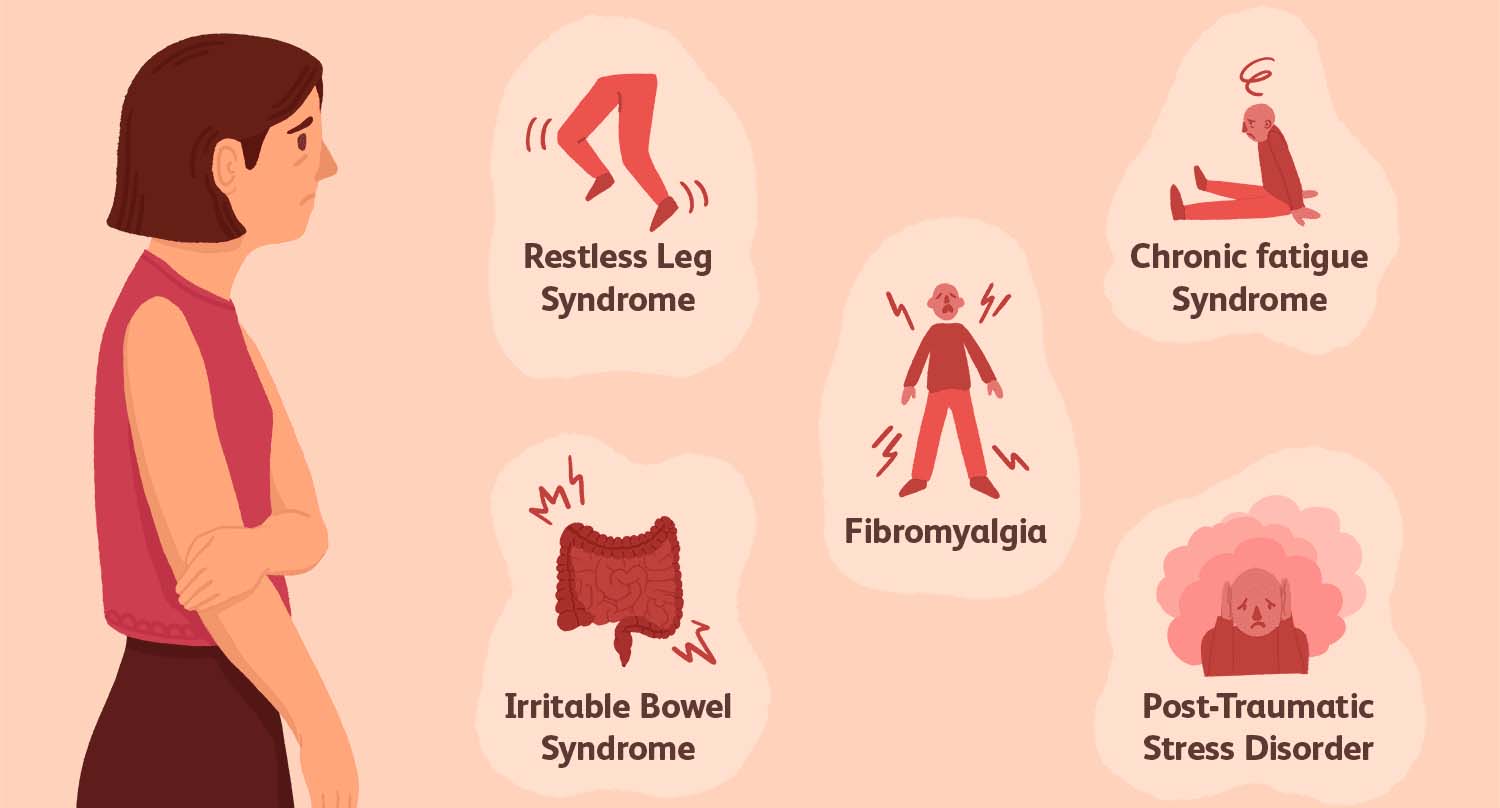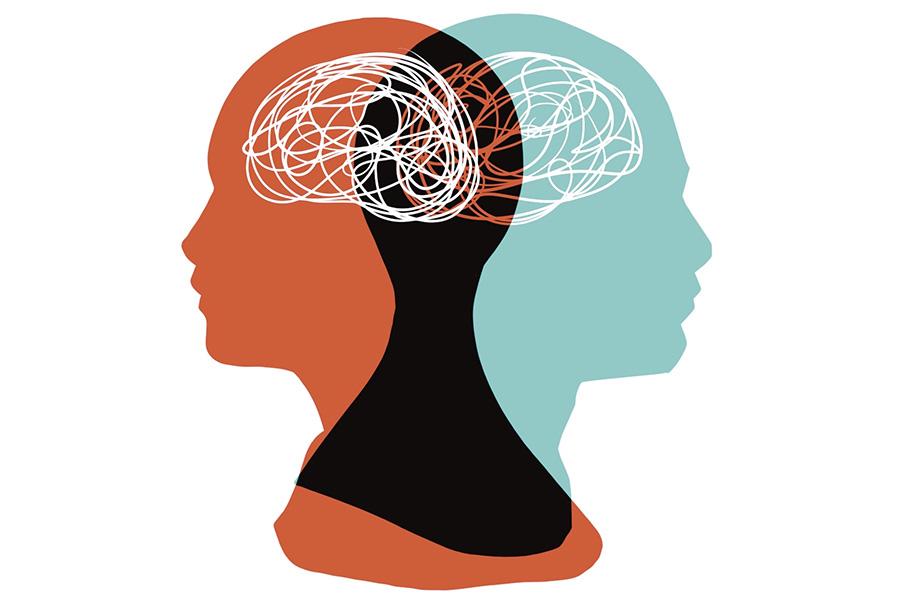The Top 5 Most Misunderstood Health Conditions
Health conditions are often complex, and the nuances of each can lead to widespread misunderstandings. These misconceptions not only affect those living with the conditions but can also influence public perception and healthcare policies.
This article explores five of the most misunderstood health conditions, highlighting the realities and dispelling common myths.
Through a deeper understanding, we can foster empathy and improve the lives of those affected.
1. Chronic Fatigue Syndrome (Myalgic Encephalomyelitis)
 Chronic Fatigue Syndrome (CFS), also known as Myalgic Encephalomyelitis (ME), is a debilitating condition characterized by extreme fatigue that does not improve with rest and cannot be explained by an underlying medical condition. Despite its severity, CFS/ME is often misunderstood, with many dismissing it as mere tiredness or a psychological issue.
Chronic Fatigue Syndrome (CFS), also known as Myalgic Encephalomyelitis (ME), is a debilitating condition characterized by extreme fatigue that does not improve with rest and cannot be explained by an underlying medical condition. Despite its severity, CFS/ME is often misunderstood, with many dismissing it as mere tiredness or a psychological issue.
The Reality of CFS/ME
CFS/ME is a complex and multifaceted condition that affects multiple systems of the body. Patients experience profound exhaustion, cognitive impairments, sleep disturbances, muscle pain, and other symptoms that severely impact their quality of life.
The fatigue is not alleviated by rest and can be exacerbated by physical or mental exertion, a phenomenon known as post-exertional malaise.
Despite extensive research, the exact cause of CFS/ME remains unclear, which has contributed to its misunderstanding. Some theories suggest it may be triggered by viral infections, immune system abnormalities, or hormonal imbalances. However, the lack of definitive biomarkers has led to skepticism among healthcare professionals and the public.
Misconceptions and Stigma
One of the most damaging misconceptions about CFS/ME is that it is a psychological condition or a result of laziness. This stigma has led to patients being dismissed or misdiagnosed, and in some cases, denied appropriate care. The belief that CFS/ME is "all in the mind" can be deeply harmful, leaving patients feeling isolated and invalidated.
2. Fibromyalgia
Fibromyalgia is another chronic condition that is often misunderstood and misdiagnosed. It is characterized by widespread musculoskeletal pain, fatigue, sleep disturbances, and cognitive difficulties, often referred to as "fibro fog."
Despite being recognized by major health organizations, fibromyalgia is frequently met with skepticism.
Understanding Fibromyalgia
The exact cause of fibromyalgia is unknown, but it is believed to involve a combination of genetic, environmental, and psychological factors. The condition is thought to amplify painful sensations by affecting the way the brain processes pain signals. This altered pain perception can result in significant discomfort and disability.
Fibromyalgia is often accompanied by other conditions, such as irritable bowel syndrome (IBS), migraines, and temporomandibular joint disorder (TMJ). The overlap of symptoms with other conditions can make diagnosis challenging, leading to delays in treatment and support.
The Challenge of Validation
One of the most significant issues facing fibromyalgia patients is the lack of visible symptoms, which can lead to disbelief from others, including healthcare providers.
The pain and fatigue associated with fibromyalgia are real, but their subjective nature can make it difficult for others to understand.
This lack of validation can exacerbate the emotional toll of the condition, contributing to anxiety, depression, and social isolation.
3. Mental Health Disorders
 Mental health disorders, including depression, anxiety, and bipolar disorder, are some of the most prevalent yet misunderstood health conditions.
Mental health disorders, including depression, anxiety, and bipolar disorder, are some of the most prevalent yet misunderstood health conditions.
Despite growing awareness, stigma and misconceptions continue to affect those living with these conditions, often preventing them from seeking help or receiving appropriate treatment.
The Complexity of Mental Health
Mental health disorders are complex conditions that involve a combination of genetic, biological, environmental, and psychological factors. They can affect mood, thinking, behavior, and overall functioning.
Conditions like depression and anxiety are not simply the result of personal weakness or a lack of willpower; they are legitimate medical conditions that require proper diagnosis and treatment.
Depression, for example, is more than just feeling sad or down. It involves persistent feelings of hopelessness, a lack of energy, and a loss of interest in activities once enjoyed. Similarly, anxiety disorders go beyond normal worry or stress and can manifest as intense fear, panic attacks, and avoidance behaviors.
Overcoming Stigma
The stigma surrounding mental health disorders is a significant barrier to care. Many people fear being judged or discriminated against if they disclose their condition, leading to a reluctance to seek help.
This stigma is often fueled by misconceptions, such as the belief that mental health issues are a sign of weakness or that individuals can simply "snap out of it."
Education and awareness are crucial in changing these perceptions. Understanding that mental health disorders are real, treatable conditions can help reduce stigma and encourage more people to seek the support they need.
4. Attention Deficit Hyperactivity Disorder (ADHD)
Attention Deficit Hyperactivity Disorder (ADHD) is a neurodevelopmental disorder that affects both children and adults. It is characterized by symptoms of inattention, hyperactivity, and impulsivity.
Despite being one of the most common mental health disorders, ADHD is often misunderstood and misrepresented.
The Realities of ADHD
ADHD is not simply a matter of being overly energetic or having difficulty paying attention. It is a complex condition that affects executive functioning, including the ability to plan, organize, and manage time. People with ADHD may struggle with tasks that require sustained focus, be easily distracted, and find it challenging to complete tasks.
In children, ADHD is often associated with disruptive behavior, which can lead to difficulties in school and strained relationships with peers and teachers. In adults, ADHD can manifest as problems with time management, organization, and maintaining relationships. Many adults with ADHD are undiagnosed, as the condition was traditionally considered a childhood disorder.
Misconceptions and Diagnosis
One of the most common misconceptions about ADHD is that it is the result of poor parenting or a lack of discipline.
This belief is not only incorrect but also harmful, as it places blame on parents and fails to recognize the neurological basis of the condition. ADHD is a medical condition that requires appropriate diagnosis and treatment, including behavioral therapy and, in some cases, medication.
Another misconception is that ADHD is overdiagnosed or that it is a condition made up to justify medication use. While it is true that ADHD diagnosis rates have increased, this is likely due to better recognition and understanding of the condition, rather than overdiagnosis.
5. Irritable Bowel Syndrome (IBS)
Irritable Bowel Syndrome (IBS) is a common gastrointestinal disorder characterized by symptoms such as abdominal pain, bloating, gas, diarrhea, and constipation.
Despite its prevalence, IBS is often misunderstood, with many dismissing it as a minor or purely psychological condition.
The Impact of IBS
IBS is a chronic condition that can significantly impact a person's quality of life. The symptoms can be unpredictable and vary in severity, leading to discomfort, embarrassment, and social anxiety.
IBS is also associated with other conditions, such as fibromyalgia and chronic fatigue syndrome, further complicating the lives of those affected.
The exact cause of IBS is not well understood, but it is believed to involve a combination of factors, including gut motility issues, visceral hypersensitivity, and changes in the gut microbiome. Stress and diet can exacerbate symptoms, but IBS is not simply a result of stress or poor eating habits.
Addressing Misconceptions
One of the biggest misconceptions about IBS is that it is "all in the head." While stress can trigger or worsen symptoms, IBS is a legitimate medical condition with a physiological basis. Dismissing it as a psychological issue can prevent individuals from receiving appropriate care and support.
Another misconception is that IBS is not a serious condition. While it is not life-threatening, the chronic nature of IBS and its impact on daily life can be profound. Proper management and treatment are essential to help individuals with IBS lead fulfilling lives.
Conclusion
Understanding health conditions is essential to providing appropriate care, reducing stigma, and improving the lives of those affected. Chronic Fatigue Syndrome, Fibromyalgia, Mental Health Disorders, ADHD, and Irritable Bowel Syndrome are just a few examples of conditions that are often misunderstood and misrepresented.
By challenging misconceptions and promoting awareness, we can foster a more compassionate and informed society. This will not only benefit those living with these conditions but also contribute to better healthcare outcomes for all.
References
- Chronic Fatigue Syndrome (ME/CFS) - CDC
- Understanding Fibromyalgia - Mayo Clinic
- Mental Health Disorders Overview - World Health Organization
- ADHD in Adults - National Institute of Mental Health
- Irritable Bowel Syndrome (IBS) - American College of Gastroenterology
- The Stigma of Mental Health Disorders - Mental Health Foundation
- ADHD Myths and Facts - CHADD
- Fibromyalgia Myths - Arthritis Foundation
- Understanding IBS - Johns Hopkins Medicine
































































